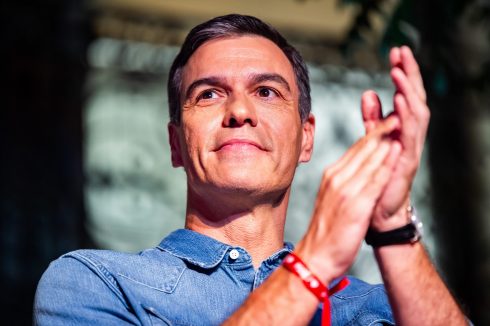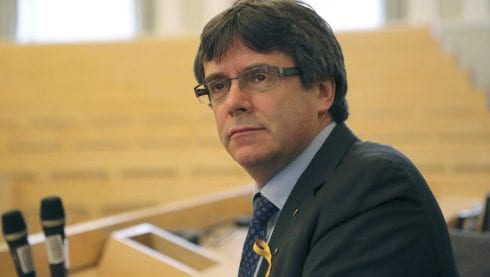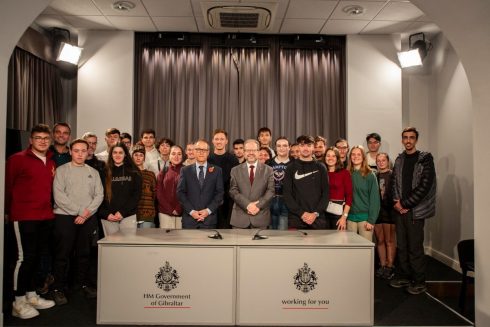SPAIN’S Socialist Party (PSOE) has finally sealed a deal with the Together for Catalunya group that will pave the way for caretaker prime minister Pedro Sanchez to secure a new term in office. The agreement was reached in the early hours of Thursday morning, after intense negotiations between the two sides over the terms.
Sanchez has been seeking the support of lawmakers in the lower house of parliament, the Congress of Deputies, in the wake of the inconclusive general election of July 23.
That poll was won by the conservative Popular Party (PP), but that group’s leader, Alberto Nuñez Feijoo, was unable to secure the votes of other parties in his bid to become prime minister at an investiture vote in September.
Since then, PSOE leader Pedro Sanchez has insisted that he can find the backing needed to become prime minister once more. Late last month, a coalition deal with far-left alliance Sumar was announced by the party, but that still left the caretaker prime minister short of votes.
Catalan nationalist parties are among those groups that Sanchez needs if he is to win an investiture vote, at which he must secure a simple majority of more yes votes than no in the 350-seat chamber.

Last week, the PSOE signed a deal to secure the support of the Catalan Republican Left (ERC), which governs in the northeastern Catalunya region. But a similar agreement with Together for Catalunya was not announced as expected, and the negotiations dragged on until this morning’s deal was finally reached.
Sources from the negotiations told Europa Press that there were several sticking points. One was the exact terms of the amnesty that Sanchez has promised for anyone involved in the 2017 drive for independence in the Catalunya region, which included an illegal vote on secession from Spain, followed by a unilateral declaration of independence being passed by the regional parliament.
Together for Catalunya reportedly wanted to make sure that the terms of the amnesty were completely watertight, and could not be later reversed by judges in the Constitutional Court.
Judiciary opposed
Members of Spain’s judiciary have already voiced their opposition to the idea of an amnesty for those who are still facing charges over their actions during the independence drive, while the idea is also fiercely opposed by political parties such as the PP and far-right Vox.
Another of the sticking points in the talks was reportedly the possibility that several figures close to the former Catalan premier, Carles Puigdemont, could be left out of the amnesty deal.
Puigdemont fled Spain in 2017 in the wake of the unilateral declaration of independence, and has been living in self-imposed exile in Belgium ever since in order to avoid arrest and trial.
The politician, who is currently a member of the European Parliament, is expected to appear at a press conference in Brussels today at 12pm in order to explain the contents of the deal with the PSOE and sign the agreement.
The development could see Pedro Sanchez’s investiture debate and subsequent vote held as early as next week, bringing an end to the stalemate in place since the July 23 general elections. An agreement between the Basque Nationalist Party (PNV) and the PSOE is still yet to be signed but negotiations are reportedly well advanced.
If Sanchez fails at his bid for power at an investiture vote, Spaniards will have to return to the polls in the New Year.

The imminent announcement of the deal with Together for Catalunya, and the agreement already reached with the ERC, has prompted a series of demonstrations across Spain in recent days outside the headquarters of the PSOE.
These protests turned violent in Madrid on Monday and Tuesday night, as far-right groups turned out to join the demonstrations.
Rejection of the deal
Senior members of the PSOE, including former prime minister Felipe Gonzalez, have also expressed their rejection of the deal.
Spain’s legal watchdog, the General Council of the Judiciary (CGPJ), also stated on Monday that granting amnesty to the politicians, civil activists and officials involved in the events of 2017 would damage the rule of law in Spain by overturning court rulings.
A letter sent this week to Sanchez by the European commissioner for justice, Didier Reynders, expressed ‘serious concerns’ about the amnesty law.
Before the July 23 general election Sanchez had rejected the idea of such an amnesty, calling it ‘unconstitutional’.
Read more:
- Spain takes step closer to ending political stalemate, as caretaker prime minister and Catalan nationalists agree amnesty deal
- Spain’s caretaker prime minister voices strongest backing yet for Catalan amnesty
- Spain’s caretaker prime minister holds unprecedented meetings with Basque and Catalan separatists
Click here to read more Spain News from The Olive Press.








